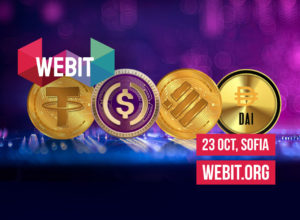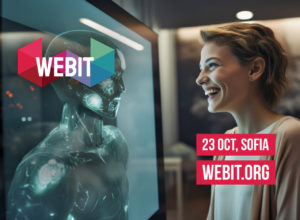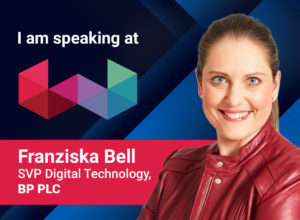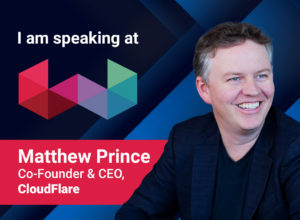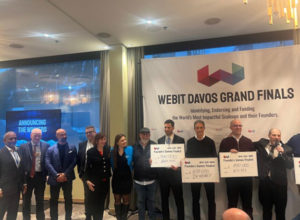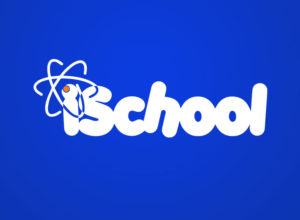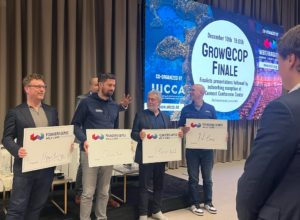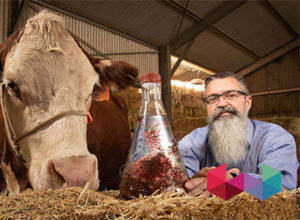Stablecoins and Regulations: The Role of MiCA in Shaping the Future
Stablecoins have emerged as a pivotal innovation in the cryptocurrency space, promising the benefits of digital assets while minimizing the volatility typically associated with them. As their adoption grows, so does the need for comprehensive regulatory frameworks to ensure their stability and security. One such significant regulatory effort is the European Union's Markets in Crypto-Assets (MiCA) regulation. This article explores the concept of stablecoins, the necessity of regulation, and how MiCA aims to address the challenges posed by this burgeoning sector.
Understanding Stablecoins
Stablecoins are a type of cryptocurrency designed to maintain a stable value relative to a reference asset, often a fiat currency like the US dollar or the euro. They offer the transactional benefits of cryptocurrencies—such as speed, low cost, and borderless transactions—without extreme price fluctuations.Types of Stablecoins
- Fiat-Collateralized: These stablecoins are backed by reserves of fiat currencies held in a bank account. Examples include Tether (USDT) and USD Coin (USDC).
- Crypto-Collateralized: Backed by other cryptocurrencies, these stablecoins maintain stability through over-collateralization and smart contracts. An example is DAI.
- Algorithmic: These stablecoins use algorithms to control the supply, adjusting it to maintain a stable value. TerraUSD (UST) was a notable example before its collapse.
The Need for Regulation
Stablecoins, while offering numerous advantages, also pose significant risks. Their widespread use for payments and as a store of value means any instability can have broader economic implications.Key Concerns
- Market Integrity: Ensuring that stablecoins are fully backed by reserves and that these reserves are readily accessible.
- Consumer Protection: Safeguarding users from potential losses due to fraud, mismanagement, or insolvency of stablecoin issuers.
- Financial Stability: Preventing systemic risks that could arise from the failure of a widely-used stablecoin.
- Illicit Activities: Mitigating the use of stablecoins in money laundering, terrorist financing, and other illegal activities.
MiCA: Markets in Crypto-Assets Regulation
The European Union has taken a proactive stance with the introduction of the Markets in Crypto-Assets (MiCA) regulation. MiCA aims to provide a comprehensive regulatory framework for cryptocurrencies, including stablecoins, to foster innovation while ensuring financial stability and consumer protection.Key Provisions of MiCA
- Authorization and Supervision: Issuers of stablecoins, or "asset-referenced tokens," must obtain authorization from national competent authorities and adhere to stringent oversight.
- Reserve Requirements: Stablecoin issuers must hold sufficient reserves to back their tokens fully. These reserves must be segregated and protected in case of issuer insolvency.
- Transparency and Disclosure: Issuers are required to provide detailed white papers outlining the nature, purpose, and technology behind the stablecoin, along with regular audits and public disclosures about the reserves.
- Consumer Protection: MiCA introduces measures to protect consumers, including rights to redemption and clear information about potential risks.
- Market Integrity: The regulation sets out rules to prevent market abuse, including insider trading and manipulation.
Impact of MiCA on the Stablecoin Market
MiCA is expected to have a profound impact on the stablecoin market, setting a precedent for regulatory frameworks globally.Benefits
- Increased Confidence: Robust regulation can enhance trust in stablecoins, encouraging wider adoption by consumers and businesses.
- Market Stability: By ensuring that stablecoins are adequately backed and transparent, MiCA aims to prevent the kind of instability seen with algorithmic stablecoins.
- Innovation and Growth: Clear regulatory guidelines can provide a conducive environment for innovation, attracting investment and fostering competition in the FinTech sector.
Challenges
- Compliance Costs: The regulatory requirements may impose significant costs on issuers, potentially stifling smaller startups.
- Global Coordination: As cryptocurrencies are inherently borderless, there is a need for coordination with regulatory frameworks in other jurisdictions to avoid regulatory arbitrage and ensure comprehensive oversight.
#WebitFestival2024 is an exciting opportunity for industry leaders and experts to come together to discuss the latest trends and developments in the field of education.
The Revolutionary Role of AI in Education
In an age where technology permeates every aspect of our lives, the field of education is undergoing a transformative shift. At the forefront of this evolution is Artificial Intelligence (AI), which promises to revolutionise how we teach and learn. From personalized learning experiences to administrative efficiencies, AI is poised to make education more effective, accessible, and engaging.
Personalized Learning Experiences
One of the most significant impacts of AI in education is its ability to provide personalized learning experiences. Traditional classroom settings often struggle to cater to the diverse learning paces and styles of individual students. AI-driven platforms, however, can analyze a student's strengths and weaknesses, adapting content and pacing to fit their unique needs. For instance, platforms like Khan Academy and Coursera utilize AI to recommend tailored learning pathways, ensuring that students receive the support they need to master challenging concepts.Intelligent Tutoring Systems
AI-powered intelligent tutoring systems (ITS) offer another layer of personalized support. These systems use natural language processing and machine learning to interact with students in real time, providing hints, feedback, and step-by-step guidance. Examples include Carnegie Learning's MATHia, which assists students in understanding complex mathematical concepts, and Duolingo, which employs AI to personalize language learning exercises. These tutors are available 24/7, offering a level of accessibility and individualized attention that human tutors alone cannot match.Enhanced Engagement and Motivation
Engagement is a critical factor in successful learning outcomes, and AI is making strides in this area as well. Gamified learning platforms leverage AI to create immersive, interactive experiences that make learning fun and engaging. AI can adjust the difficulty level of tasks to maintain an optimal challenge, ensuring that students remain motivated and interested. Virtual reality (VR) and augmented reality (AR) applications, powered by AI, are also being used to create experiential learning environments, allowing students to explore historical events, scientific phenomena, and more in a highly engaging manner.Data-Driven Insights
AI's capability to analyze vast amounts of data is transforming how educators understand and improve their teaching methods. Learning analytics powered by AI can identify patterns and trends in student performance, providing educators with actionable insights. For example, AI can detect when a student is struggling with a particular topic and suggest interventions or additional resources. This data-driven approach enables teachers to make informed decisions and tailor their instruction to better meet the needs of their students.Streamlined Administrative Tasks
Beyond the classroom, AI is also streamlining administrative tasks, allowing educators to focus more on teaching. AI-driven systems can automate routine tasks such as grading, scheduling, and even responding to common student inquiries. Tools like Gradescope use AI to assist with grading assignments and providing feedback, significantly reducing the time educators spend on these tasks. Chatbots, powered by AI, can handle administrative questions from students, providing instant responses and freeing up valuable time for educators and administrative staff.Bridging Educational Gaps
AI has the potential to bridge educational gaps and promote equity in education. By providing personalized learning resources and support, AI can help students from diverse backgrounds and with varying levels of prior knowledge to achieve their educational goals. Additionally, AI can assist in identifying and supporting students with special needs, ensuring that they receive the appropriate accommodations and interventions.Ethical Considerations and Challenges
While the benefits of AI in education are substantial, it is essential to address the ethical considerations and challenges that accompany its adoption. Issues such as data privacy, algorithmic bias, and the digital divide must be carefully managed to ensure that AI is used responsibly and equitably. Educators and policymakers must work together to establish guidelines and standards that protect student data and promote transparency in AI systems.Conclusion
AI is undeniably transforming the educational landscape, offering unprecedented opportunities for personalized learning, enhanced engagement, and administrative efficiency. As we continue to integrate AI into education, it is crucial to remain mindful of the ethical implications and strive to use this powerful tool to create a more inclusive and effective learning environment. The future of education is bright with AI, promising a more tailored, engaging, and equitable experience for all learners. Join the discussion and learn from global leaders in the industry on the 23rd and 24th of October in Sofia. https://www.webit.org/festival-europe/index.php#WebitFestival2024 is an exciting opportunity for industry leaders and experts to come together to discuss the latest trends and developments in the field of education.
We are thrilled to announce our second speaker for the upcoming...
Franziska Bell is the SVP of Digital Technology at BP, where she drives digital transformation, leading software and platform engineering, data science, AI, and more. Her work is pivotal in advancing bp's digital and cultural transformation.
With a rich background in leading tech teams at Uber and Toyota Research Institute, Franziska has a proven track record of leveraging technology to create impactful solutions.
🎯 Come and join us to benefit from her extensive experience and innovative approach to digital technology and stay tuned for more updates!
✨ #DigitalTransformation #Innovation #Leadership #Webit #WebitFestival#bp
❗ Join us at Webit Festival 2024:
https://www.webit.org/festival-europe/index.php
We’re thrilled to announce that Matthew Prince, Co-Founder & CEO of...
Matthew has been instrumental in shaping the internet as we know it, leading Cloudflare's mission to build a better, safer online world. Under his leadership, Cloudflare runs one of the largest networks globally, spanning over 310 cities in more than 120 countries! 🌍
As the co-creator of Project Honey Pot, the largest community of webmasters fighting online fraud and abuse, Matthew continues to make significant contributions to internet security.
🎯 Don't miss the chance to hear from one of the foremost leaders in tech innovation!
❗ Join us at Webit Festival 2024!
https://www.webit.org/festival-europe/index.php
🌟#Webit2024 #TechInnovation #Cloudflare #MatthewPrince #InternetSecurity #TechLeaders
New Webit 2024 edition
Welcome to the grand unveiling of the new Webit 2024 edition, where the world's most esteemed leaders unite under the resounding theme: "Sustainable AI Future for Humans & Robots." Here, amidst the convergence of minds and ideas, we embark on a journey to mend and co-create the future we all aspire to see.
At the heart of our endeavours lies the empowerment heralded by the United Nations' Sustainable Development Goals (SDGs). With inclusivity, resilience, responsible living, and holistic well-being as our guiding principles, we stand poised to sculpt a future that resonates with harmony and progress for all.
A major focus this year is on the usage of AI and the applications of sustainable solutions across these tracks, driving forward the frontiers of technology while ensuring a better, greener future for all.
Dive deep into each track and discover the future, shaped by visionary minds and groundbreaking ideas.
🌐 Visit our website to learn more about the event and be a part of the revolution:
https://www.webit.org/
Let's create the desirable future together!
Davos: Checks for BGN 1,600,000 received by the winners of ...
Webit Foundation was hosting its Founders Games Grand finals in Davos. The 14th Webit Grand Final was one of the most anticipated events for investors, innovators and media in Davos. 12 esteemed global growth companies showcased their impactful solutions and resilient business ventures. Founders Games Finalists were selected from over 4500 companies from 150 countries. They have endured the test of the collective intelligence of 250+ investors and late-stage VC representatives in 5 rounds of selection and made it to the Grand Finals.
The event had a waiting list that exceeded 2,800 guests. Representatives from BlackRock ($9 trillion under management), Mercer ($16.45 trillion as a consultant and $379 billion under management), media including the editors-in-chief of Fortune, the Wall Street Journal, CNN's Richard Quest and many others witnessed the selection of the most successful, sustainable and influential entrepreneur in the world for 2023.
The Prime Minister of Bulgaria Academician Nikolay Denkov was also among the special guest at the event, as well as the Minister of Finance Assen Vassilev, the member of the European Union Eva Maydel and others.
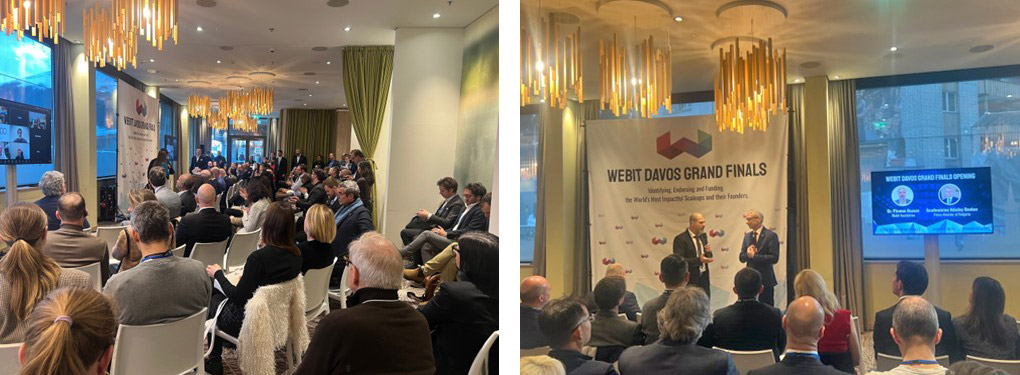 These are the big winners:
AwanTunai is a leading fintech company in Indonesia. It is at the forefront of digitizing the offline FMCG supply chain. The company effectively addresses operational and financial challenges for offline suppliers by integrating ERP software plug-ins and embedded financing solutions.
Jentis - leading European Data Capture Platform (DCP) that reshapes the future of data-driven marketing in a privacy-first world. JENTIS DCP consists of three main components: Capture: Server-side tracking, various data enrichments as well as raw data availability, Control: Compliant processing and data masking, Share: Integrations for compliant data flow to 3rd party marketing and analytics tools.
At the core of Nilus' approach is the development of technology to directly source food at risk of spoilage from farmers and producers. This food is then efficiently distributed to low-income communities. By leveraging technology and promoting community-led initiatives, Nilus not only tackles food waste but also ensures that nutritious and affordable food reaches those who need it most.
All of them have received checks for a total value of 600 thousand BGN, and after passing an additional stage of due diligence, their investment may increase.
The jury favorites were the companies BeeHero, with a check of 600 thousand BGN, and inHeart, with a check of 400 thousand BGN.
BeeHero's mission is to tackle the alarming decline of bee populations. BeeHero installs advanced sensors in both hives and fields, strategically collecting audio and biological data. By applying proprietary artificial intelligence (AI) and machine learning (ML) analysis, BeeHero transforms this data - invaluable to beekeepers and producers alike.
inHEART is a company that specializes in developing cutting-edge software solutions designed specifically for cardiologists. inHEART creates digital duplicates of patients' hearts. These digital images serve as invaluable tools for cardiologists, offering support in the treatment of cardiac arrhythmias and assisting in the prediction, screening and prevention of various heart diseases in the general population.
Rich Nuzum from Mercer, Oliver Holle from Speedinvest, Nityen Lal from ICOS Capital, Adam Niewinski from OTB Ventures, Omar Al Yawer from Ruya Partners, Renee Niemi from Mighty Capital, Karen McCormick from Beringea, Alexander “Sasha” Galitsky from Almaz Capital, Bakhrom Ibrahimov from Molten, Clemente Francavilla from Plug & Play were part of the All-Star investors jury panel.
The application form for the new season is open. You can apply here.
These are the big winners:
AwanTunai is a leading fintech company in Indonesia. It is at the forefront of digitizing the offline FMCG supply chain. The company effectively addresses operational and financial challenges for offline suppliers by integrating ERP software plug-ins and embedded financing solutions.
Jentis - leading European Data Capture Platform (DCP) that reshapes the future of data-driven marketing in a privacy-first world. JENTIS DCP consists of three main components: Capture: Server-side tracking, various data enrichments as well as raw data availability, Control: Compliant processing and data masking, Share: Integrations for compliant data flow to 3rd party marketing and analytics tools.
At the core of Nilus' approach is the development of technology to directly source food at risk of spoilage from farmers and producers. This food is then efficiently distributed to low-income communities. By leveraging technology and promoting community-led initiatives, Nilus not only tackles food waste but also ensures that nutritious and affordable food reaches those who need it most.
All of them have received checks for a total value of 600 thousand BGN, and after passing an additional stage of due diligence, their investment may increase.
The jury favorites were the companies BeeHero, with a check of 600 thousand BGN, and inHeart, with a check of 400 thousand BGN.
BeeHero's mission is to tackle the alarming decline of bee populations. BeeHero installs advanced sensors in both hives and fields, strategically collecting audio and biological data. By applying proprietary artificial intelligence (AI) and machine learning (ML) analysis, BeeHero transforms this data - invaluable to beekeepers and producers alike.
inHEART is a company that specializes in developing cutting-edge software solutions designed specifically for cardiologists. inHEART creates digital duplicates of patients' hearts. These digital images serve as invaluable tools for cardiologists, offering support in the treatment of cardiac arrhythmias and assisting in the prediction, screening and prevention of various heart diseases in the general population.
Rich Nuzum from Mercer, Oliver Holle from Speedinvest, Nityen Lal from ICOS Capital, Adam Niewinski from OTB Ventures, Omar Al Yawer from Ruya Partners, Renee Niemi from Mighty Capital, Karen McCormick from Beringea, Alexander “Sasha” Galitsky from Almaz Capital, Bakhrom Ibrahimov from Molten, Clemente Francavilla from Plug & Play were part of the All-Star investors jury panel.
The application form for the new season is open. You can apply here.
 These are the big winners:
AwanTunai is a leading fintech company in Indonesia. It is at the forefront of digitizing the offline FMCG supply chain. The company effectively addresses operational and financial challenges for offline suppliers by integrating ERP software plug-ins and embedded financing solutions.
Jentis - leading European Data Capture Platform (DCP) that reshapes the future of data-driven marketing in a privacy-first world. JENTIS DCP consists of three main components: Capture: Server-side tracking, various data enrichments as well as raw data availability, Control: Compliant processing and data masking, Share: Integrations for compliant data flow to 3rd party marketing and analytics tools.
At the core of Nilus' approach is the development of technology to directly source food at risk of spoilage from farmers and producers. This food is then efficiently distributed to low-income communities. By leveraging technology and promoting community-led initiatives, Nilus not only tackles food waste but also ensures that nutritious and affordable food reaches those who need it most.
All of them have received checks for a total value of 600 thousand BGN, and after passing an additional stage of due diligence, their investment may increase.
The jury favorites were the companies BeeHero, with a check of 600 thousand BGN, and inHeart, with a check of 400 thousand BGN.
BeeHero's mission is to tackle the alarming decline of bee populations. BeeHero installs advanced sensors in both hives and fields, strategically collecting audio and biological data. By applying proprietary artificial intelligence (AI) and machine learning (ML) analysis, BeeHero transforms this data - invaluable to beekeepers and producers alike.
inHEART is a company that specializes in developing cutting-edge software solutions designed specifically for cardiologists. inHEART creates digital duplicates of patients' hearts. These digital images serve as invaluable tools for cardiologists, offering support in the treatment of cardiac arrhythmias and assisting in the prediction, screening and prevention of various heart diseases in the general population.
Rich Nuzum from Mercer, Oliver Holle from Speedinvest, Nityen Lal from ICOS Capital, Adam Niewinski from OTB Ventures, Omar Al Yawer from Ruya Partners, Renee Niemi from Mighty Capital, Karen McCormick from Beringea, Alexander “Sasha” Galitsky from Almaz Capital, Bakhrom Ibrahimov from Molten, Clemente Francavilla from Plug & Play were part of the All-Star investors jury panel.
The application form for the new season is open. You can apply here.
These are the big winners:
AwanTunai is a leading fintech company in Indonesia. It is at the forefront of digitizing the offline FMCG supply chain. The company effectively addresses operational and financial challenges for offline suppliers by integrating ERP software plug-ins and embedded financing solutions.
Jentis - leading European Data Capture Platform (DCP) that reshapes the future of data-driven marketing in a privacy-first world. JENTIS DCP consists of three main components: Capture: Server-side tracking, various data enrichments as well as raw data availability, Control: Compliant processing and data masking, Share: Integrations for compliant data flow to 3rd party marketing and analytics tools.
At the core of Nilus' approach is the development of technology to directly source food at risk of spoilage from farmers and producers. This food is then efficiently distributed to low-income communities. By leveraging technology and promoting community-led initiatives, Nilus not only tackles food waste but also ensures that nutritious and affordable food reaches those who need it most.
All of them have received checks for a total value of 600 thousand BGN, and after passing an additional stage of due diligence, their investment may increase.
The jury favorites were the companies BeeHero, with a check of 600 thousand BGN, and inHeart, with a check of 400 thousand BGN.
BeeHero's mission is to tackle the alarming decline of bee populations. BeeHero installs advanced sensors in both hives and fields, strategically collecting audio and biological data. By applying proprietary artificial intelligence (AI) and machine learning (ML) analysis, BeeHero transforms this data - invaluable to beekeepers and producers alike.
inHEART is a company that specializes in developing cutting-edge software solutions designed specifically for cardiologists. inHEART creates digital duplicates of patients' hearts. These digital images serve as invaluable tools for cardiologists, offering support in the treatment of cardiac arrhythmias and assisting in the prediction, screening and prevention of various heart diseases in the general population.
Rich Nuzum from Mercer, Oliver Holle from Speedinvest, Nityen Lal from ICOS Capital, Adam Niewinski from OTB Ventures, Omar Al Yawer from Ruya Partners, Renee Niemi from Mighty Capital, Karen McCormick from Beringea, Alexander “Sasha” Galitsky from Almaz Capital, Bakhrom Ibrahimov from Molten, Clemente Francavilla from Plug & Play were part of the All-Star investors jury panel.
The application form for the new season is open. You can apply here. WIN invests in iSchool – the rapidly growing education platform in...
The region is on a trajectory of economic and demographic growth with over 100 million students from first to 12th grade - potential iSchool customers.
If there is any guarantee for a good future - it is the investment in education.
At Webit Investment Network (Bulgarian Stock Exchange: WIN) we are happy to announce our investment in the company iSchool.
This is an educational platform that teaches children from 1st to 12th grade digital skills. The main market is the Middle East, with over 100 million potential customers.
This year, the company will generate over $3M in revenue, educating over 4'000 children a month.
ISchool shows double growth compared to last year, and expectations for next year are even more optimistic.
Very soon, the first deal with the government to educate 10’000 new children will be announced.
The company is on the threshold of a completely new training model based on artificial intelligence, with the upcoming launch of their K-12 platform, as well as a new one that allows for the complete customization of the educational process to the needs of each student .
The money from the current investment round in which WIN is participating will be used for product development and to establish itself in new markets in the Middle East and North African regions.
This is WIN's fourth investment in a row and second this week alone.
Two days ago WIN announced its investment in CH4 Global, together with one of the iconic US venture capital investment funds - DCVC as well as the fund of the former president and CEO of McDonald's - Cleveland Avenue.
This is another WIN investment in a fast-growing company that not only generates potential for economic success, but also has a positive social and environmental impact.
Last week in an official ceremony in the Presidential Hall of the UN Climate Conference and in the presence of the UN Assistant Secretary General, top international investors, politicians and innovators, Webit announced the list of 10 semi-finalists (2-4 more to be announced) that will compete in the finals in Davos during the World Economic Forum and will include companies in WIN has the irrevocable right to invest.
Thus, approximately 700 Bulgarian shareholders in WIN (from BSE's Beam market) will become owners in several more top global, fast-growing companies that not only grow, but generate social and environmental positive impact, making them the companies of the future!
iSchool passed the Founders Games 2022 program and was named a finalist in the competition, ranking among the 6 selected from over 3,500 applicants in the winter season of Webit's “Games for Entrepreneurs”. WIN has the exclusive contractual right to invest in all Founders Games finalists. Thus, WIN investors gain the right to own property through the shares that WIN buys in these fast-growing companies.
These are the COP28 Finalists – the founders who’ll help save...
They competed with over 4,300 other contenders from 150 countries and won the highest ratings from a jury of over 300 growth stage VC investors
А special Webit GROW@COP ceremony held at the conference center of the United Nations COP Presidency in Dubai, Webit announced the 10 finalist companies that reached the COP round of one of the world's largest advanced innovation programs and competitions for growth stage companies - Founders Games organized by Webit. They will join the rest of the finalists, which will traditionally be announced at a special gala ceremony during the World Economic Forum in Davos in January.
The COP finals were honored by Mrs. Afshan Khan, Assistant Secretary General of the United Nations, representatives of the world's investment elite, ministers, policy makers and innovators.
The Webit Foundation has partnered with the independent climate change accelerator UICCA, personally led by Her Royal Highness Sheikha Shamma, a progressive member of the royal family of UAE. Before the big ceremony on the 10th, the semi-finals of the Founders Games took place from the 3rd to the 9th of December, where the semi-finalists from the verticals - Healthcare, Energy, Mobility, Education, Cleantech, Food & Agritech and Finance presented their companies to a jury of over 100 investors during COP..
Let us introduce you to the Founders Games GROW@COP finalists:
BeeHero, an innovative Israeli company founded in 2017. The company's mission is to tackle the alarming decline of bee populations. BeeHero installs advanced sensors in both hives and fields, strategically collecting audio and biological data. By applying proprietary artificial intelligence (AI) and machine learning (ML) analysis, BeeHero transforms this data - invaluable to beekeepers and producers alike.
At the core of Nilus' approach is the development of technology to directly source food at risk of spoilage from farmers and producers. This food is then efficiently distributed to low-income communities. By leveraging technology and promoting community-led initiatives, Nilus not only tackles food waste, but also ensures that nutritious and affordable food reaches those who need it most.
Novoloop is a technology company committed to tackling the problem of plastic waste and creating a more sustainable future. The company invented a chemical technology to convert post-consumer plastic waste into the world's first chemically recycled low-carbon elastomers.
OroraTech enables better climate resilience solutions through continuous thermal data from space. After the launch of the first thermal sensor FOREST-1 in 2022 and the subsequent introduction of FOREST-2 in 2023, a network of sensors was established to continuously monitor the Earth's temperature on a global scale. Within just three minutes, the technology alerts clients if their assets are at risk, ensuring timely action.
HeyCharge is a company founded in 2020. HeyCharge guarantees cheap and reliable electric vehicle (EV) charging. They replace traditional internet connections at each charging station with a secure, token-based communication system via users' smartphones. This solution provides fast and completely reliable charging, even in challenging environments such as areas with low coverage or no coverage, including underground parking lots.
PlanetWatch introduces an engaging element of gamification to air quality monitoring. This approach not only raises awareness but also encourages active participation in monitoring efforts. PlanetWatch builds its network through the use of compact air quality monitors that seamlessly transmit data to a cloud platform.
inHEART is a company that specializes in developing cutting-edge software solutions designed specifically for cardiologists. inHEART creates digital duplicates of patients' hearts. These digital images serve as invaluable tools for cardiologists, offering support in the treatment of cardiac arrhythmias and assisting in the prediction, screening and prevention of various heart diseases in the general population.
AwanTunai is a leading fintech company in Indonesia. It is at the forefront of digitizing the offline FMCG supply chain. The company effectively addresses operational and financial challenges for offline suppliers by integrating ERP software plug-ins and embedded financing solutions.
Payflow - a company founded in March 2020. Payflow gives users on-demand access to their paychecks, freeing them from strict payment schedules. Other features of the app are: Learnflow (financial education platform), Saveflow (integrated virtual and automated savings system) and Flexflow (the compensation platform)
ATLANT 3D is a Danish deep technology company founded in 2018 to revolutionize electronics atom by atom. The company is developing fundamentally different and innovative micro- and nanofabrication platform technology that enables atomically precise advanced manufacturing of advanced materials and electronics
Webit Investment Network (BSE:WIN) announces another investment in achieving UN Goal...
WIN became a proud investor in the US based CH4 Global
CH4 Global is a true example of a global impact company solving an existential problem for the human kind.
Due to its structure, methane traps more heat in the atmosphere per molecule than carbon dioxide (CO2), making it 80 times more harmful than CO2 for 20 years after it is released. Cutting methane emissions by 45 per cent by 2030 could help us meet the Paris Agreement's goal of limiting global warming to 1.5°C. The patented solution of CH4 Global can contribute directly in reaching 1/3 of this target! Here is why and how:
According to the Global Methane Assessment published in 2021, methane emissions from livestock (including cattle) are the largest sources of agricultural emissions worldwide. A single cow can make up to 120 kg of methane gas per year. Not counting for the emissions of any other livestock, 1.5 billion cattle, raised specifically for meat production worldwide, emit at least 105 billion kg of methane into the atmosphere each year (Our World in Data).
CH4 Global has patented food supplement which not only reduces the Methane from cows by up to 90% but it also increases the meat and milk production by 10-15%. This is the true example of how innovation can save the human kind and touches almost all of the SDGs.
CH4 Global's current funding round will help the company to scale it's production capacity to mass-production levels. The round was co-lead by DCVC's Zachary Bogue, cDCVC Bio's current funding John Hamer and Donald Thompson' (past president and chief executive of McDonald's Corporation) Cleveland Avenue
“We are receiving massive interest from governments, food producers and farmers of all sizes, fueling our sense of urgency that we must act now to avoid a climate tipping point. The pressure is on with new regulations and the desire to produce at a measurably lower impact. The Series B funding is a key step to make this a reality.” said Steve Meller, PhD, co-founder and CEO, CH4 Global.
„We are excited to join CH 4Global and the top list of investors in the company as we see the true impact its patented solutions will have on the lives of billions of people. We have seen the farmers of Ireland rioting the streets of the country, after the government's proposals to cull almost 200,000 dairy cows over the next three years (over 15% of all dairy cows in Ireland) for reducing its methane footprint and complying with European Commission.” said Dr. Plamen Russev, executive board member of Webit Investment Network and founding chairman of Webit.Foundation „This is not needed anymore with the existence of the CH4 Global patented solution. It is not only providing solutions for the climate, but also for saving hundreds of millions of farmers and their livelihood which makes it one of the world's most important inventions in terms of both social and environmental impact”, said Dr. Russev.
The commercialisation of the CH4 Global patented solutions is already a fact as on September 26, 2023 the multinational conglomerate Lotte International announced strategic partnershipwith the company aiming to bring Methane Tamer™, CH 4Global' eminent enteric methane-reduction technology, to South Korea. CH4 Global and Lotte International are currently advancing studies for regulatory approval in South Korea in consultation with the government. The partnership includes the initial supply to the Lotte-owned Australian feedlot, Sandalwood, for up to seven thousand head of cattle, primarily Wagyu Beef. As CH4 Global’s exclusive partner in South Korea, Lotte will provide up to four million cattle with the enteric methane-reducing feed supplement. The climate impact, from reduced emissions, for four million cattle would be as much as ten million metric tons, or a conservative estimate of seven million metric tons of CO2-e per year (GWP100).
 About CH4 Global
CH4 Global, founded in 2018, is on an urgent mission to bend the climate curve, through collaboration with strategic partners worldwide. Led by a world-class team of senior business builders, scientists and entrepreneurs, the company delivers market-disruptive products that enable the food industry value chain to radically reduce GHG emissions. The company’s first innovation, Methane Tamer™ feed additives for feedlot cattle, harnesses the power of Asparagopsis seaweed to reduce enteric methane emissions by up to 90%. CH4 Global is headquartered in Henderson, NV, with current subsidiaries in Australia and New Zealand.
About WIN:
Webit Investment Network is a publicly listed company (BSE:WIN) which invests exclusively with the right of first refusal in the finalists of the world's biggest growth stage programe and competition – The Founders Games by Webit.Foundation. The Founders Games receives annually over 4500 applications (from 150+ countries) from growth stage companies (valuation between $30M and $300M) and by using the collective intelligence of over 300 global growth stage VC investors selects through five competitive rounds up to 10 companies as finalists at a special Gala Awards Ceremony in Davos during the WEF week each year. Based on the terms and rules of the competition, a select number of the finalists get part of the $6M investment award and all of them usually close an investment round of $5M to $50M within 4-5 months after being announced as finalists. The finalists from the past 6 years cumulatively have increased the attracted capital by a multiple of 6.9 times. All of them generate social and environmental change alongside very successful and high growth businesses. WIN is the first publicly listed company of its kind in the world, allowing investors on the stock exchange to be able to invest in some of the fastest growing companies from around the world that not only have a successful business, but also an environmental and social positive footprint. Thus, the company achieves another of its goals – combating the digital divide – by giving people the opportunity to gain financial interest where, before WIN, only large venture capital funds could invest.
CH4Global was among the Founders Games finalists announced during the gala ceremony in Davos and the week of the World Economic Forum in 2023.
See which companies made it to the COP Finals of the Founders Games in 2023.
About CH4 Global
CH4 Global, founded in 2018, is on an urgent mission to bend the climate curve, through collaboration with strategic partners worldwide. Led by a world-class team of senior business builders, scientists and entrepreneurs, the company delivers market-disruptive products that enable the food industry value chain to radically reduce GHG emissions. The company’s first innovation, Methane Tamer™ feed additives for feedlot cattle, harnesses the power of Asparagopsis seaweed to reduce enteric methane emissions by up to 90%. CH4 Global is headquartered in Henderson, NV, with current subsidiaries in Australia and New Zealand.
About WIN:
Webit Investment Network is a publicly listed company (BSE:WIN) which invests exclusively with the right of first refusal in the finalists of the world's biggest growth stage programe and competition – The Founders Games by Webit.Foundation. The Founders Games receives annually over 4500 applications (from 150+ countries) from growth stage companies (valuation between $30M and $300M) and by using the collective intelligence of over 300 global growth stage VC investors selects through five competitive rounds up to 10 companies as finalists at a special Gala Awards Ceremony in Davos during the WEF week each year. Based on the terms and rules of the competition, a select number of the finalists get part of the $6M investment award and all of them usually close an investment round of $5M to $50M within 4-5 months after being announced as finalists. The finalists from the past 6 years cumulatively have increased the attracted capital by a multiple of 6.9 times. All of them generate social and environmental change alongside very successful and high growth businesses. WIN is the first publicly listed company of its kind in the world, allowing investors on the stock exchange to be able to invest in some of the fastest growing companies from around the world that not only have a successful business, but also an environmental and social positive footprint. Thus, the company achieves another of its goals – combating the digital divide – by giving people the opportunity to gain financial interest where, before WIN, only large venture capital funds could invest.
CH4Global was among the Founders Games finalists announced during the gala ceremony in Davos and the week of the World Economic Forum in 2023.
See which companies made it to the COP Finals of the Founders Games in 2023.
 About CH4 Global
CH4 Global, founded in 2018, is on an urgent mission to bend the climate curve, through collaboration with strategic partners worldwide. Led by a world-class team of senior business builders, scientists and entrepreneurs, the company delivers market-disruptive products that enable the food industry value chain to radically reduce GHG emissions. The company’s first innovation, Methane Tamer™ feed additives for feedlot cattle, harnesses the power of Asparagopsis seaweed to reduce enteric methane emissions by up to 90%. CH4 Global is headquartered in Henderson, NV, with current subsidiaries in Australia and New Zealand.
About WIN:
Webit Investment Network is a publicly listed company (BSE:WIN) which invests exclusively with the right of first refusal in the finalists of the world's biggest growth stage programe and competition – The Founders Games by Webit.Foundation. The Founders Games receives annually over 4500 applications (from 150+ countries) from growth stage companies (valuation between $30M and $300M) and by using the collective intelligence of over 300 global growth stage VC investors selects through five competitive rounds up to 10 companies as finalists at a special Gala Awards Ceremony in Davos during the WEF week each year. Based on the terms and rules of the competition, a select number of the finalists get part of the $6M investment award and all of them usually close an investment round of $5M to $50M within 4-5 months after being announced as finalists. The finalists from the past 6 years cumulatively have increased the attracted capital by a multiple of 6.9 times. All of them generate social and environmental change alongside very successful and high growth businesses. WIN is the first publicly listed company of its kind in the world, allowing investors on the stock exchange to be able to invest in some of the fastest growing companies from around the world that not only have a successful business, but also an environmental and social positive footprint. Thus, the company achieves another of its goals – combating the digital divide – by giving people the opportunity to gain financial interest where, before WIN, only large venture capital funds could invest.
CH4Global was among the Founders Games finalists announced during the gala ceremony in Davos and the week of the World Economic Forum in 2023.
See which companies made it to the COP Finals of the Founders Games in 2023.
About CH4 Global
CH4 Global, founded in 2018, is on an urgent mission to bend the climate curve, through collaboration with strategic partners worldwide. Led by a world-class team of senior business builders, scientists and entrepreneurs, the company delivers market-disruptive products that enable the food industry value chain to radically reduce GHG emissions. The company’s first innovation, Methane Tamer™ feed additives for feedlot cattle, harnesses the power of Asparagopsis seaweed to reduce enteric methane emissions by up to 90%. CH4 Global is headquartered in Henderson, NV, with current subsidiaries in Australia and New Zealand.
About WIN:
Webit Investment Network is a publicly listed company (BSE:WIN) which invests exclusively with the right of first refusal in the finalists of the world's biggest growth stage programe and competition – The Founders Games by Webit.Foundation. The Founders Games receives annually over 4500 applications (from 150+ countries) from growth stage companies (valuation between $30M and $300M) and by using the collective intelligence of over 300 global growth stage VC investors selects through five competitive rounds up to 10 companies as finalists at a special Gala Awards Ceremony in Davos during the WEF week each year. Based on the terms and rules of the competition, a select number of the finalists get part of the $6M investment award and all of them usually close an investment round of $5M to $50M within 4-5 months after being announced as finalists. The finalists from the past 6 years cumulatively have increased the attracted capital by a multiple of 6.9 times. All of them generate social and environmental change alongside very successful and high growth businesses. WIN is the first publicly listed company of its kind in the world, allowing investors on the stock exchange to be able to invest in some of the fastest growing companies from around the world that not only have a successful business, but also an environmental and social positive footprint. Thus, the company achieves another of its goals – combating the digital divide – by giving people the opportunity to gain financial interest where, before WIN, only large venture capital funds could invest.
CH4Global was among the Founders Games finalists announced during the gala ceremony in Davos and the week of the World Economic Forum in 2023.
See which companies made it to the COP Finals of the Founders Games in 2023. 